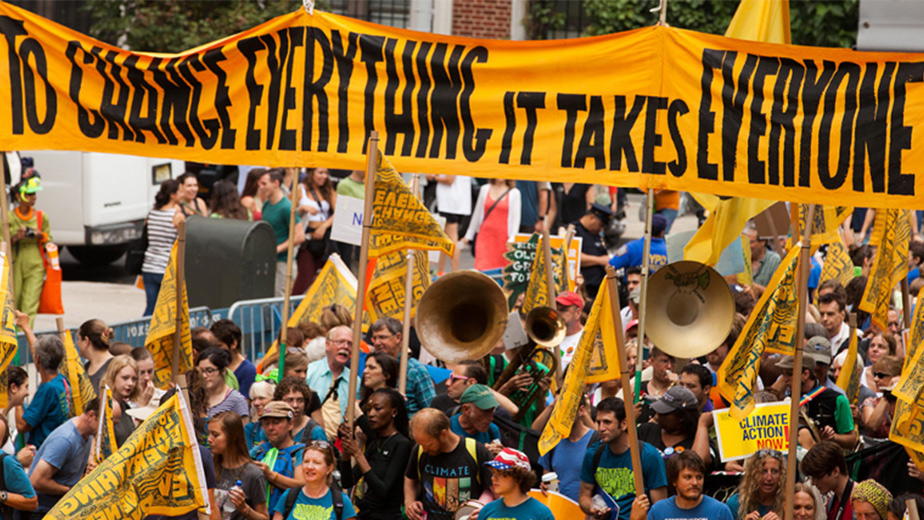What barriers do BIPOC-led grassroots groups encounter in attempting to access equitable holistic, responsive, and culturally aligned fiscal sponsorship services?
How can fiscal sponsors reimagine their services and delivery models to provide holistic, responsive, and culturally aligned fiscal management and capacity-building services to support BIPOC-led grassroots groups that support marginalized communities?
TSNE and NYU Metro Center partnered with four diverse fiscal sponsors from across the country to explore how they addressed these questions and to amplify their evolving work.
CultureWorks Greater Philadelphia, the Foraker Group, Movement Strategy Center, and Urban Affairs Coalition reimagined risk and provided holistic, responsive, and culturally aligned fiscal management and capacity-building services to support the unique needs of grassroots groups. TSNE lifts up these fiscal sponsors’ emerging practices that aim to provide essential administrative, financial management, and capacity-building supports to under-resourced grassroots groups, especially those led by BIPOC leaders. These are not prescriptive “best practices,” but rather emerging practices from select fiscal sponsors, that demonstrate how to conduct equity-centered and transformative services.
TSNE is strengthening our commitment to impact investment by looking at new ways to support the people and organizations working to advance progress in our society. This report came out of our Learning Lab — a two year initiative focused on understanding the capacity building needs of under-resourced organizations that are promoting social good.
Read about emerging practices, recommendations, and case studies
Download the Reimagining Fiscal Sponsorship in Service of Equity report
Meet the case study organizations
CultureWorks Greater Philadelphia
CultureWorks Greater Philadelphia’s mission is to provide arts, heritage, and creative practitioners equitable access to the resources they need to flourish. The organization builds and shares all of the essential supporting services that individual cultural practitioners and nonprofit organizations or creative enterprises need for their programs, work, or services to succeed. These include staff to manage finance, compliance, HR, legal, fundraising, marketing, and data, in addition to flex and interim staffing, office and meeting space, advisory services, basic insurances, and nonprofit status itself.
The Foraker Group
The Foraker Group’s core purpose is to strengthen nonprofits. Its deep commitment to advancing dedicated, skilled, and compassionate professionals and volunteers to serve Alaska’s nonprofit and tribal organizations is guided by the Foraker Nonprofit Sustainability Model. Foraker knows that for nonprofits to succeed, they need to be strong, stable, and ready to innovate and collaborate. As a leader, catalyst, and partner each aspect of Foraker’s work strengthens leaders, organizations, collaborations, and the sector.
Foraker’s fiscal sponsorship service, Sultana, exists to support groups and projects in the preliminary stages of their development, offering opportunities to incubate ideas, employ staff, and provide the stability that funders need to make initial investments. Understanding that not every new idea needs a new nonprofit and that not every nonprofit is ready to stand on its own, Sultana is a “safe place” for projects to germinate until they understand what long-term form, if any, they want to take.
Movement Strategy Center
Movement Strategy Center understands that transformative movements change the way we think, our structures and systems, the way we live, and even who we are.
MSC’s approach is grounded in four elements that are the core of transformative movement building: leading with audacious vision and bold purpose; deeply embodying the values at the heart of the vision; building radical and deep community around the vision; and using all of that — vision, embodiment, and connection — to strategically navigate toward the future.
Urban Affairs Coalition
The Urban Affairs Coalition unites government, business, neighborhoods, and individual initiative to improve the quality of life in the region, build wealth in urban communities, and solve emerging issues.
UAC is a home for nonprofits — a coalition of 80+ partner organizations, large and small, working on diverse issues that immediately affect communities. The Coalition delivers infrastructure for community empowerment that strengthens nonprofit organizations through fiscal sponsorship, shared services, program development, and capacity building; improving life chances for youth and young adults; and providing economic opportunity to low-income households, working families, and disadvantaged businesses.
